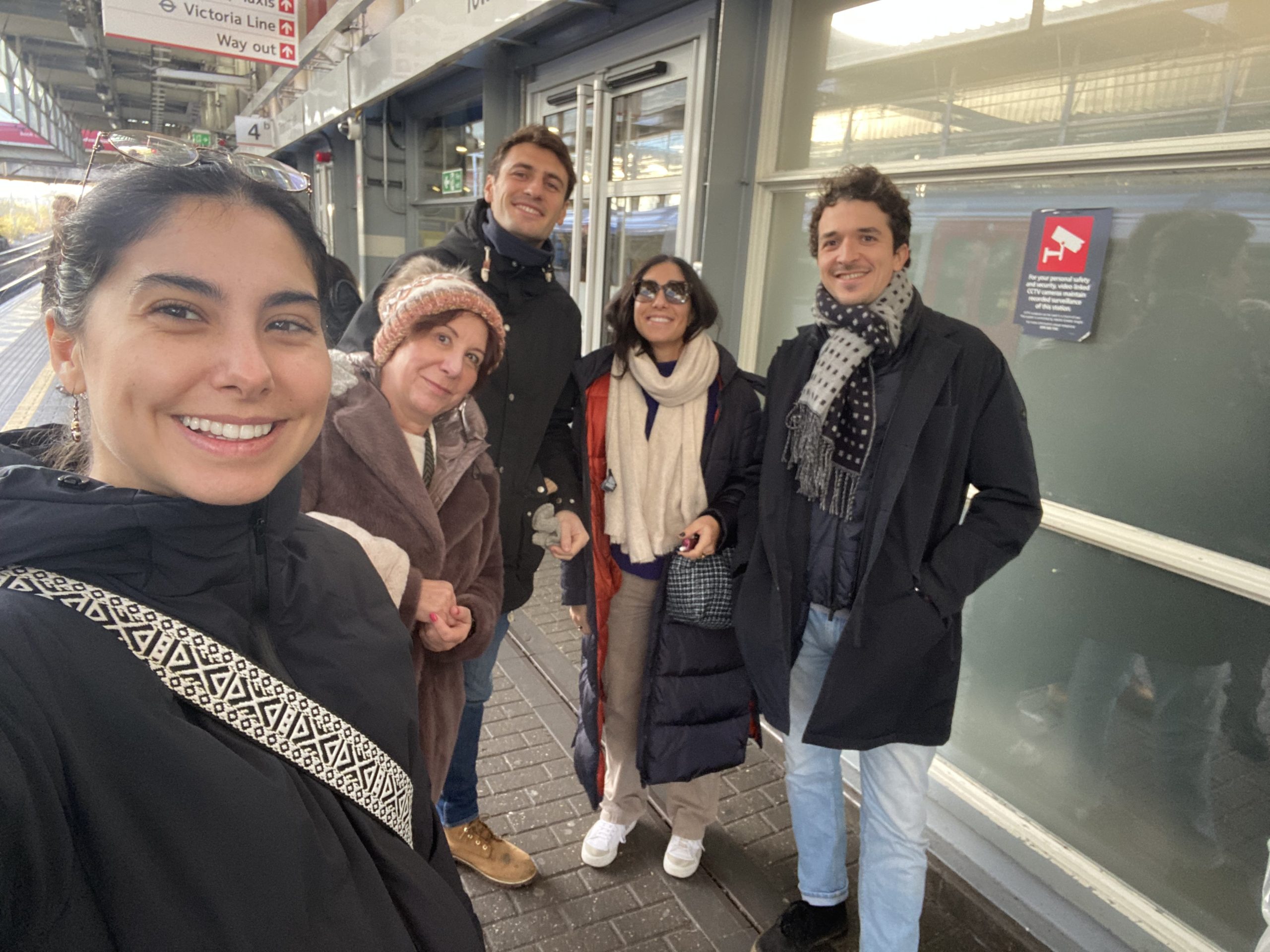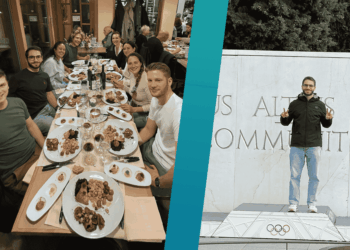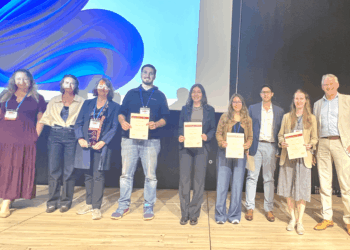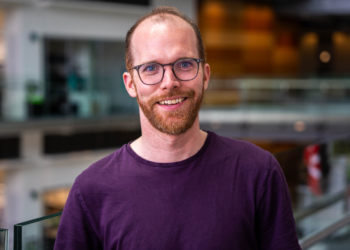Olivia Prior Palomares is a PhD student at the Vall d’Hebron Institute of Oncology, Spain who received an EACR Travel Fellowship to visit and work at the Early Cancer Institute, Cambridge, UK between February and April 2025.
The EACR, with support from Worldwide Cancer Research, provides Travel Fellowships of up to €3,500 to enable early-career cancer researchers to gain new skills through a short-term visit to a lab or research group in another country.
You can read about other Travel Fellows and their experiences here.
Name: Olivia Prior Palomares
Job title: PhD student
Home institute: Vall d’Hebron Institute of Oncology, Spain
Host institute: Early Cancer Institute, Cambridge, UK
Dates of visit: 17 February – 25 April 2025
Research: I study how different medical imaging techniques like CT and MRI can work together to understand tumour complexity. This is important because tumours respond differently to treatment, and we believe this might be related to their internal heterogeneity. By developing computational tools that quantify this heterogeneity from medical scans, we could potentially identify which tumours won’t respond well to specific treatments. This would allow doctors to select better treatment options from the start, rather than using a trial-and-error approach that delays effective care and may cause unnecessary side effects for patients.
Why did you decide to apply for an EACR Travel Fellowship?
Living in Cambridge for three months on a Spanish PhD salary would have been quite expensive, so I needed external funding. I had positive references from a colleague who received this fellowship for a research stay in Boston and spoke highly of EACR’s management. Beyond the financial aspect, I was eager to experience a different laboratory environment and gain new research perspectives. The EACR Travel Fellowship offered the ideal opportunity to pursue this meaningful collaboration while making it financially feasible, allowing me to focus entirely on the research rather than financial concerns.
Why did you choose the host lab?
We had been following Dr. Crispin-Ortuzar’s research as one of the few groups studying radiomics in oncology. I first met her when she served as an external examiner for our group’s first PhD defense in March 2024. During her visit, we had detailed discussions about capturing intratumor heterogeneity and discovered that both our groups believe CT scans can meaningfully assess this heterogeneity, though we’d both encountered similar limitations. The conversation naturally evolved toward potential collaborations, particularly around biological validation of imaging patterns. It seemed like an excellent research match.
“Beyond advancing my research skills, it broadened my professional network and cultural understanding”
Can you summarise the research you did or what you learned on your visit?
I focused on using quantitative MRI to biologically validate the tumour heterogeneity we capture with CT imaging. This involved several image registration experiments – aligning MRI and CT images from the same patients so we could compare corresponding tumour regions across both modalities. Dr. Inês Machado, a postdoc in the lab, provided valuable technical support throughout this process.
I also explored new approaches to capture intratumor heterogeneity after discussions with the PhD students – Bill, Rebecca, Hania, and Hannah. Their different perspectives opened up new methodological possibilities. We experimented with more innovative techniques involving deep learning and multimodal imaging integration to study liver tumour heterogeneity. This was quite different from my previous approaches and pushed me to think beyond my usual methods.
Did you take part in any interesting local activities?
I attended a formal dinner at St John’s College, which provided fascinating insights into Cambridge’s academic traditions. I also tried punting on the River Cam, though my technique needed work! Although I’m not religious, I attended a church service because religion plays such a significant role in Cambridge culture, and I was genuinely curious about this aspect of local life. These experiences helped me understand the rich cultural heritage that defines Cambridge beyond its academic reputation.

What was a personal highlight of your trip?
I was preparing for my first half marathon during my stay, which made me nervous because moving to a new place disrupts training routines, and I wasn’t used to running in rain or lower temperatures. Fortunately, Rebecca, one of my lab mates, was an experienced runner who lived nearby. We began running together, and she helped me maintain my training schedule despite the challenging weather.
Running through Cambridge’s natural surroundings was beautiful – living in Barcelona’s city centre, I rarely have such opportunities. However, the real highlight was the conversations we shared during those runs and developing a genuine friendship that extended beyond the laboratory.
How has the trip inspired you in your research?
The experience has definitely influenced my research perspective. Seeing how another laboratory operates provided valuable insights into different methodological approaches and research cultures. It made me appreciate certain aspects of my home institution while identifying new practices to implement.
I was particularly inspired by the team’s translational focus and multidisciplinary nature, as well as their international composition compared to our group. This reinforced my desire to work in international, multidisciplinary research environments. The experience also helped me think about my research questions from new angles, bringing fresh perspectives to studying tumour heterogeneity and its clinical applications.
Is there anything else you’d like to mention?
This experience was a real privilege, and I’m very grateful to the EACR for providing this opportunity. Beyond advancing my research skills, it broadened my professional network and cultural understanding. The technical skills I gained in multimodal data analysis and the collaborative relationships I formed will benefit my future research.
Want to find out more?
If you are interested in applying for the Travel Fellowship scheme, please click here for more information: EACR Travel Fellowships










